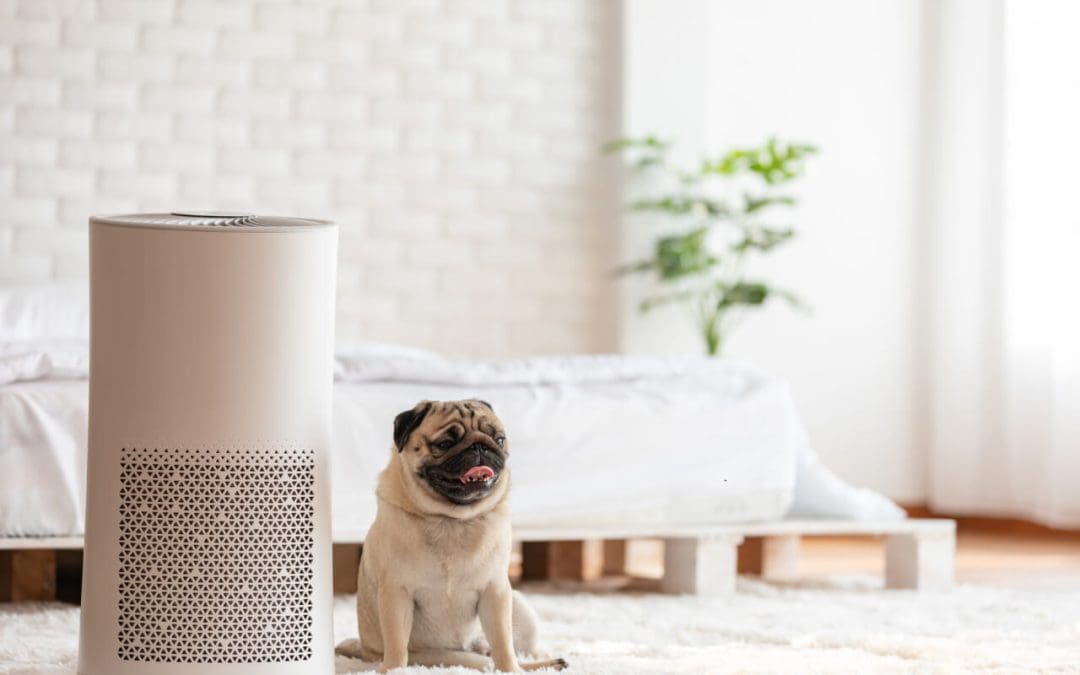Indoor air quality is an essential but often neglected aspect of home health. Many homeowners are unaware of how polluted the air inside their homes can become. Dust, pet dander, chemicals, and even mold can lead to poor air quality, impacting the health and comfort of those living inside. Fortunately, there are several strategies you can implement to improve the air you breathe at home. Here’s how to improve indoor air quality for a healthier, more comfortable living space.
Regular Ventilation is Key to Improve Indoor Air Quality
One of the easiest ways to improve indoor air quality is to let fresh air into your home regularly. Proper ventilation helps reduce the concentration of pollutants trapped indoors. Even in colder weather, try to open windows for a few minutes each day to allow air to circulate. If you have ceiling fans or exhaust fans, use them to push stale air out of your home and pull fresh air in. In bathrooms and kitchens, exhaust fans are particularly effective at removing moisture and reducing the buildup of mold and mildew.
Keep Your Home Clean
Regular cleaning is crucial for maintaining good indoor air quality. Dust, allergens, and pet dander accumulate quickly on surfaces, in carpets, and on upholstery, contributing to air pollution. Frequent vacuuming with a vacuum cleaner that has a HEPA filter will help trap these particles. Wash bedding, curtains, and rugs often, as they tend to harbor dust mites and allergens. It’s also helpful to wipe down surfaces with a damp cloth, as dry dusting sends particles back into the air.
Improve Indoor Air Quality By Controlling Humidity Levels
Excessive humidity creates an ideal environment for mold, mildew, and dust mites, all of which negatively impact your home’s air quality. Keep your home’s humidity levels between 30% and 50%. Monitor humidity levels with a hygrometer and use a dehumidifier in areas prone to excess moisture, such as basements and bathrooms. On the flip side, if your home is too dry, use a humidifier to add moisture to the air, especially during winter when heating systems dry out the air.
Choose Natural Cleaning Products
Many common household cleaning products release volatile organic compounds (VOCs) into the air. These chemicals can linger long after cleaning and negatively affect air quality. Switching to natural cleaning products reduces the number of harmful chemicals released in your home. Look for products labeled as non-toxic, eco-friendly, or plant-based, which are generally safer for your health and the environment.
Invest in Air Purifiers
Air purifiers are an excellent investment for improving indoor air quality, especially for those with allergies or respiratory issues. These devices help remove a wide range of airborne pollutants, including dust, pollen, pet dander, and smoke. For best results, choose an air purifier with a HEPA filter, as this type is most effective at capturing tiny particles. Place air purifiers in the rooms where you spend the most time, such as bedrooms and living areas, to maximize their benefit.
Use Plants to Improve Indoor Air Quality
Houseplants are a natural way to improve indoor air quality. Many common indoor plants, such as spider plants, peace lilies, and snake plants, have been shown to absorb pollutants and toxins from the air. While plants alone won’t eliminate all indoor air pollution, they help reduce certain contaminants while adding a fresh, calming aesthetic to your space. Just be mindful not to overwater plants, as excessive moisture in soil can lead to mold growth.
Improving indoor air quality requires regular maintenance, good habits, and home upgrades. Making small changes, such as investing in air purifiers and houseplants or limiting synthetic fragrances, also makes a big difference. Breathe easy, knowing that these simple steps will lead to a healthier and more comfortable environment for you and your family.
FAQs
What are the signs of poor indoor air quality?
Symptoms of poor indoor air quality include frequent headaches, sinus congestion, coughing, fatigue, and irritation of the eyes, nose, or throat. If you notice an increase in dust, musty odors, or mold in your home, these may also be indicators that the air quality needs improvement.
Are scented candles and essential oil diffusers safe for indoor air quality?
While both scented candles and essential oil diffusers are popular for making your home smell pleasant, they can affect air quality. Scented candles, especially those made from paraffin wax, release small amounts of VOCs and soot. To improve air quality, choose beeswax or soy-based candles. Essential oil diffusers are generally safer, but be sure to use high-quality, pure oils to avoid inhaling synthetic chemicals.
How often should I clean my air ducts to improve air quality?
Air ducts accumulate dust, allergens, and mold over time, especially if your home is prone to high humidity or if you have pets. Have your air ducts inspected every 3 to 5 years and cleaned if there are signs of excessive dust buildup, mold, or pest infestations. Regular cleaning of ducts will help reduce the spread of airborne contaminants and improve overall air circulation.
Griffin Home Inspection provides comprehensive inspections to homebuyers and sellers in Sumter County, SC, and the surrounding areas. Contact us to request our services.

